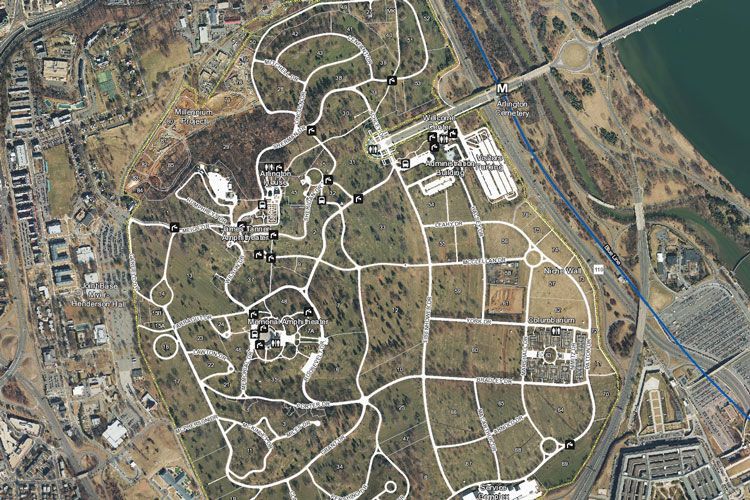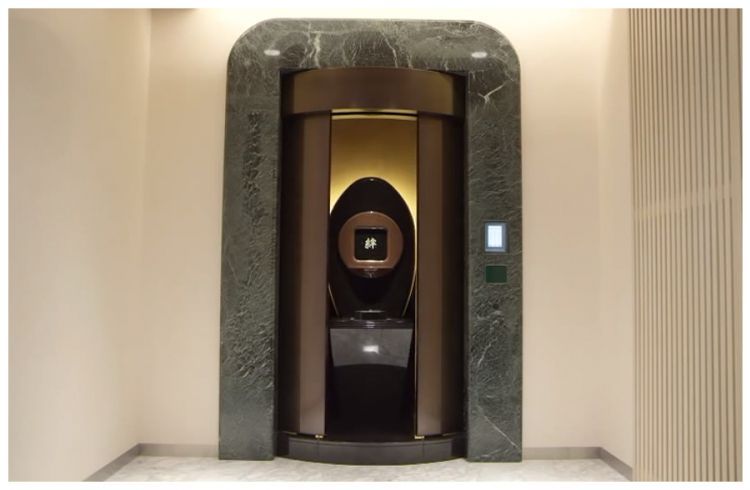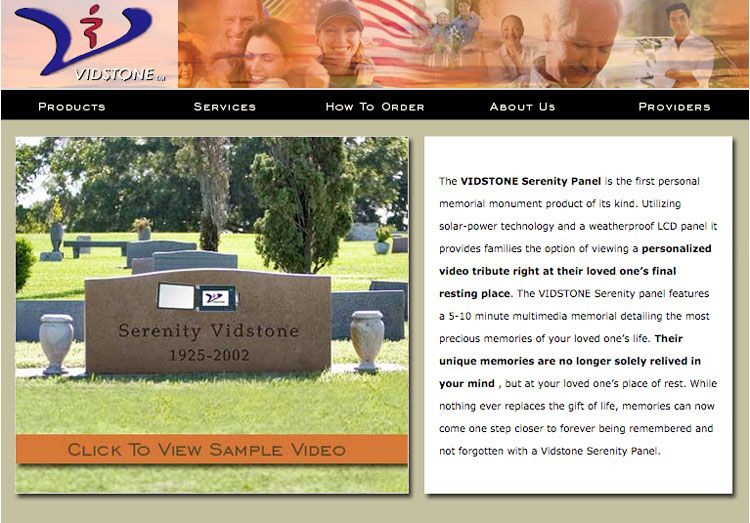How Technology Is Looking To Disrupt Your Grave
Innovative ways to honor the deceased. Can iTombs be far behind?

For centuries, the peak of cemetery technology was being able to etch a flower into a slab of rock. Now, thanks to smartphones, satellites, 3D printers, and human ingenuity, a memorial to a loved one can be much more than an urn on a shelf or a stone in a field.
QR Codes

Since just about every smartphone can read and access QR codes faster than you can say “What’s the website address?”, it makes sense that these barcode squares are popping up on grave markers. Visitors can scan the code and read about the person while viewing digital tributes left by others. As older stones from the 1800s become more and more difficult to read due to erosion and time, these new codes offer crystal clear information at the touch of a screen.
LED Lights In Japan

Electric lights and smart cards are making cemetery houses in Japan more festive and joyous. Traditionally, a Japanese family will own a cemetery plot that contains the cremated remains of all their ancestors, and it’s the responsibility of the family to keep the plot clean and maintained. However, those without children or family can now choose to be laid to rest in a new, high-tech place where they are watched over by 2,000 glass LED-lit Buddha statues. A smart card contains all your information and can be swiped to gain access to this visually dazzling final resting place.
Virtual Cemetery

The US Army is using geospatial technology to make a virtual map of the historic Arlington National Cemetery. Families can find loved ones with the ease of a smartphone app. This was the first cemetery technology of its kind and will soon spread to other locations. As anyone who has tried to find an ancestor knows, cemetery records prior to the 1950s can be tough to find… if they exist at all. This new technology will help future-proof cemeteries and make them easily accessible, all the while making it a wonderful way to honor America’s heroes.
A Parade Of Urns

What if your final resting place was always on the move? Such is the case at a mausoleum in Japan, where the ashes of the deceased are stored on racks behind the walls and delivered via mechanical tracks to visitors who swipe a smart card. This way, you’ll never need to know where pop-pop was buried. He’ll come to you. [Photo Source: Lets Japan]
3D Printed Cremation Urns

Some people use 3D printers to make their own Batman figures or combs, but you can also use the same technology to immortalize your loved one in a unique, albeit creepy, way. These personalized urns are created using photos of the deceased. They can live on your mantel and, if you choose the wrong photo, in your nightmares, forever. [Photo Source: Cremation Solutions]
Augmented Reality
Technology can help erase the idea that cemeteries are cold, lonely places. The Future Cemetery project of the Arnos Vale Cemetery in the UK uses digital projections, audio clips, tablet computers, and performance artists to create an immersive experience. Words and images are projected onto trees and tombstones making the concept of death seem quite lively and engaging.
Burial Pods

If you find marble and granite tombstones too cold and hard, use a tree as a tombstone. The Italian project called Capsula Mundi uses the remains of a human body as nutrients for a brand new tree. The ashes are placed in a pod, and a new tree planted above it, making this new system perhaps the most ancient and Earth-friendly. The cemetery will turn into a happy forest instead of seeming like the jagged remains of a scary castle. [Photo Source: Capsula Mundi Sand Urn]
Video Tombstone

It might seem like something at least one person would have wanted, but the video tombstone never became the financial success Doug Ellis of Riverview Monuments was hoping for his business. According to NBC News, he never sold a single VIDSTONE unit. The system of a small, solar-powered screen embedded into a tombstone was priced at $2,000 and allowed family members to create a digital scrapbook to be displayed on the stone.
Apart from assorted news stories posted more than a decade ago, the company’s website is no longer active — the screenshot above is from the Wayback Machine — without even a video monument honoring the innovation. However, now that screens have gotten cheaper and more pervasive (mainly for advertising purposes), maybe it's time to revist this concept again.
- How To Express Sympathy: What To Say And What...We’ve compiled a list of things to say—and things to avoid saying—when...Read more
- A Quick Overview Of Proper Funeral EtiquetteFunerals are emotionally complex, and knowing how to act can present a...Read more
- The Five Stages Of GriefAfter experiencing a loss, it's common to go through a range of emotions...Read more
- Funeral Pre-Planning Cheat SheetPlan now, rest later.Read more



